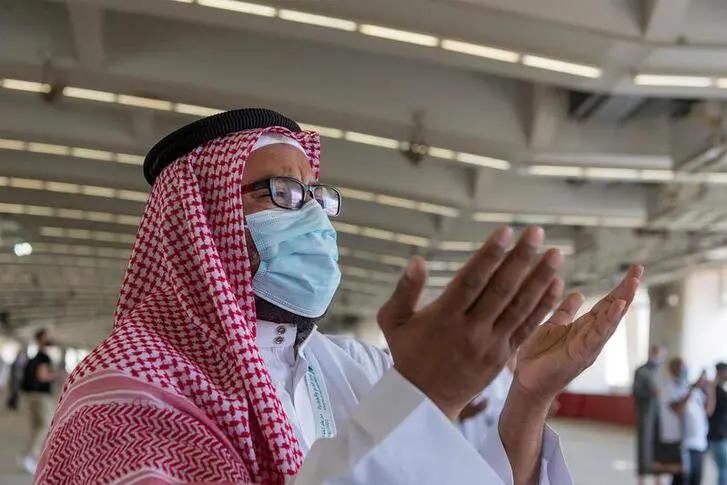PHOTO
JEDDAH: Saudi Arabia’s Ministry of Health announced a triple-digit daily increase in the number of coronavirus disease (COVID-19) cases for the third day in a row this week, while recoveries exceeded 290,000 on Monday.
A total of 951 new cases of COVID-19 were recorded in the Kingdom, meaning that 315,772 people have now contracted the disease. There were 21,079 active cases, and 1,552 of them are in critical condition.
In addition, 1,129 patients had recovered from the disease, taking the total number of recoveries in the Kingdom to 290,796.
Saudi Arabia reported 27 new COVID-19-related deaths, raising the death toll to 3,897.
The Ministry of Health called on everyone to actively wash their hands with soap and water as a means of protection against the virus, and for every person to wear a mask whether medical or cloth, or a tight cover over the nose and mouth, with the exception of those alone in enclosed spaces.
The ministry advised everyone experiencing symptoms to go to a Tetamman (rest assured) clinic and for those not experiencing symptoms, or with mild symptoms, and who believe themselves to have had contact with an infected person, to visit a Takkad (make sure) center.
In Hafar Al-Batin, 7,000 beneficiaries have received Tetamman clinic services so far, through four clinics distributed over several health facilities.
People can also book an appointment through the “Sehhaty” application, or by calling the center number (937) for consultations and inquiries around the clock, or message 920005937 on WhatsApp, for new interactive services, to obtain health information and services, learn about COVID-19 developments, primary care centers, blood donation centers, appointments and how to obtain them.
It is noteworthy that the World Health Organization (WHO) released on Monday a first indicative survey on the impact of COVID-19 on health systems based on 105 countries’ reports.
Data collected from over the period from March to June illustrated that 90 percent of the world’s countries experienced disruption to their health services, with low- and middle-income countries reporting the greatest difficulties.
“The survey shines a light on the cracks in our health systems, but it also serves to inform new strategies to improve healthcare provision during the pandemic and beyond,” said Dr Tedros Adhanom Ghebreyesus, WHO director-general. “COVID-19 should be a lesson to all countries that health is not an ‘either-or’ equation. We must better prepare for emergencies but also keep investing in health systems that fully respond to people’s needs throughout the life course.”
Copyright: Arab News © 2020 All rights reserved. Provided by SyndiGate Media Inc. (Syndigate.info).





















